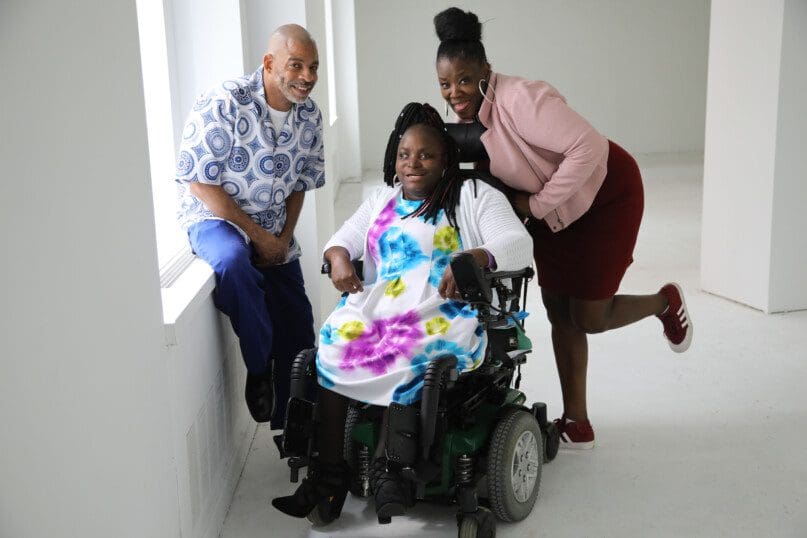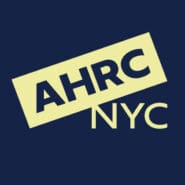Janice Bartley works for AHRC New York City in the Individualized Supports Department. She is also an advocate, using her voice to advocate for the Self-Advocacy Association of New York State, and a graduate of The Moth Community Education Program. More than a decade ago, Janice shared her story of her first love via The Moth entitled “Italian Stallion.”
Eleven years later, Janice is now happily engaged to her “boo baby” Chshone Bailey. As AHRC New York City continues its work with Project SHINE (the Sexual Health Innovation Network for Equitable Education with Youth with Intellectual Disabilities) we reached out to Janice to reflect on how she herself, the field, and how society views people with disabilities when it comes to intimate relationships and sexual health, has changed.
Reflections on Love and Intimacy
Janice: I learned a lot from my first real relationship that you heard about in my Moth story. Relationships are not easy and it gave me the necessary qualifications that I needed to do better and someone special has come into my life.
In September 2010, I was waiting at the Amtrak train station on my way to Albany for a statewide conference, when someone caught my eye. It was Chshone Bailey. He was also coming to the conference; I wasn’t looking for anything because I’ve been hurt before and I didn’t want to go through that again. But, the first thing I noticed about Chshone was that he was very helpful, kind, and handsome. When everyone else was dancing on Friday night of the conference, we went off by ourselves and just couldn’t stop talking! Fast forward eleven years later, and we are still going strong and now engaged. He is good to me and supports me. He spoils me a lot, cooks for me, and makes me feel good.
Marriage Penalties for Couples with Developmental Disabilities
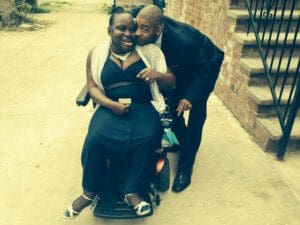
Janice: These days Chshone and my relationship is accepted and supported by our family and staff but not the laws. We want to get married but if we did our income would fall apart. The “marriage penalty” means both of our incomes would be cut and we would both lose a lot of money if we got legally married. The way the law works makes it impossible for us to get married without giving up a lot so until those laws change, we have the rings, but can’t have the legal ceremony.
As you heard I am capable of having a meaningful relationship. When you are supporting someone with a developmental disability always see them as a human being first and remember we have hopes, dreams, desires, and feelings just like any other person. We want what everyone’s heart desires!
Marriage Equality for the Disability Community
AHRC New York City continues to listen and learn from advocates such as Janice. As Disability Pride Month comes to a close, we celebrate all the progress that has been made but also acknowledge the need for more. As referenced by Janice, the law in the United States still does not recognize people with disabilities as equals when it comes to marriage rights. As Janice pointed out, people with disabilities can see a reduction or loss of Social Security benefits when they marry, which can trigger a loss of health insurance too. Read more about the nuances of the policies in this article featured in Forbes.
Interested in learning more or getting involved with Project SHINE? Visit the official Project SHINE website for more information.
Related Stories
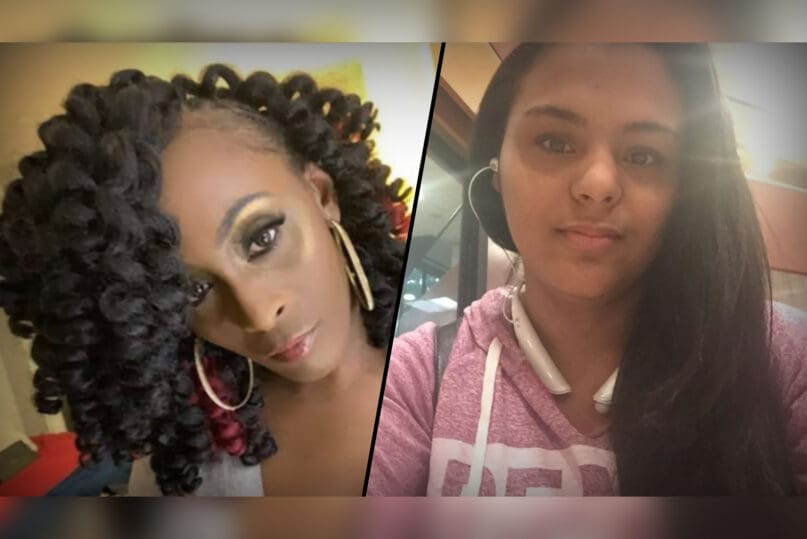
Project SHINE: A Conversation About Sexual Health, Independence, and Education
Self-advocates supported by AHRC NYC programs spoke candidly about their experiences with sexual health & education.
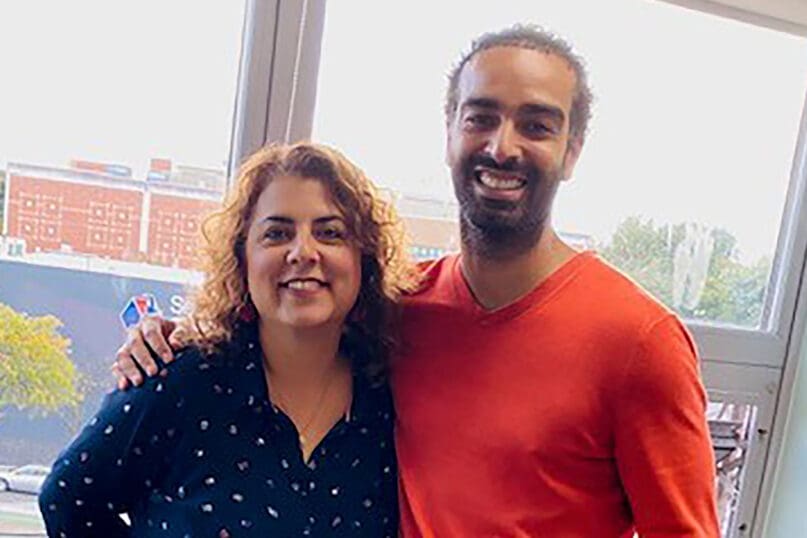
AHRC NYC’s Behavior Intervention Specialists team members are uniquely positioned to align and advocate for what the person needs to be successful.
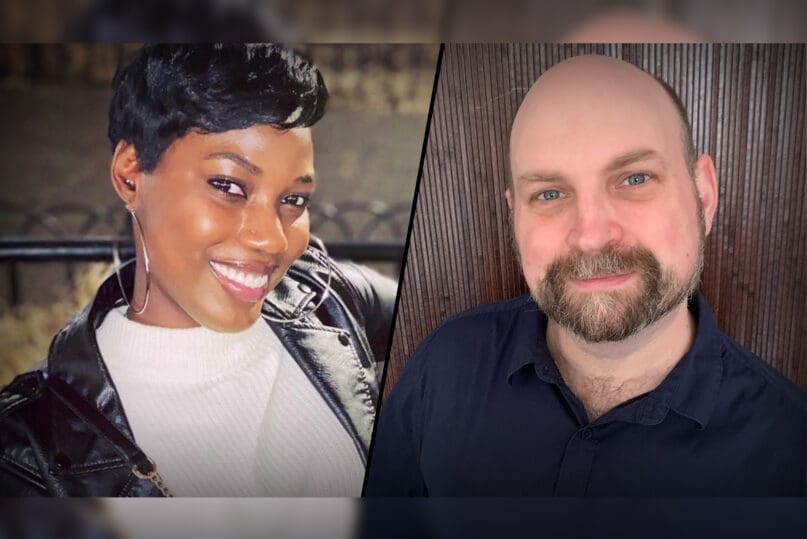
Introducing Two Project SHINE Advisory Board Members
AHRC NYC’s Tanika Marshall & Jason Conover were selected to serve on the Project SHINE Advisory Board.

AHRC New York City is proud to continue its work as part of the Project SHINE network.
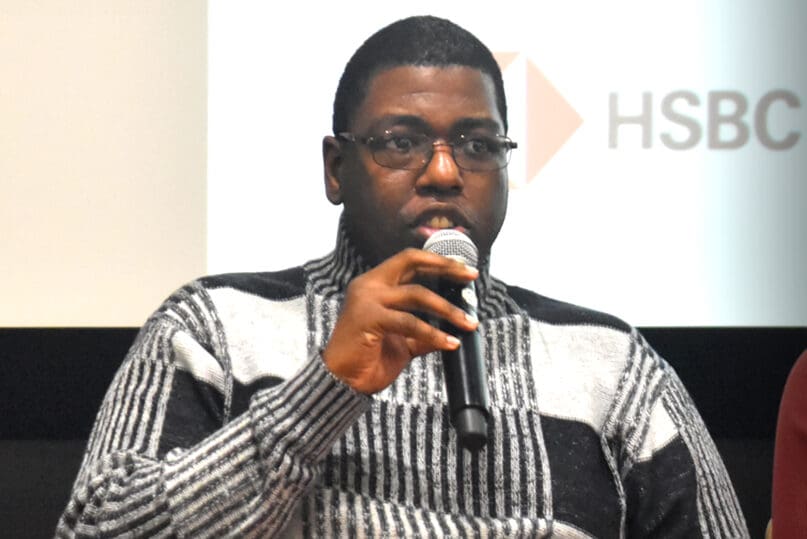
Project SHINE: In Finding Himself, Asante Breland Finds He’s an Advocate for Others Like Him
Asante Breland reflects on his journey and identity as a gay Black man as part of Project SHINE.
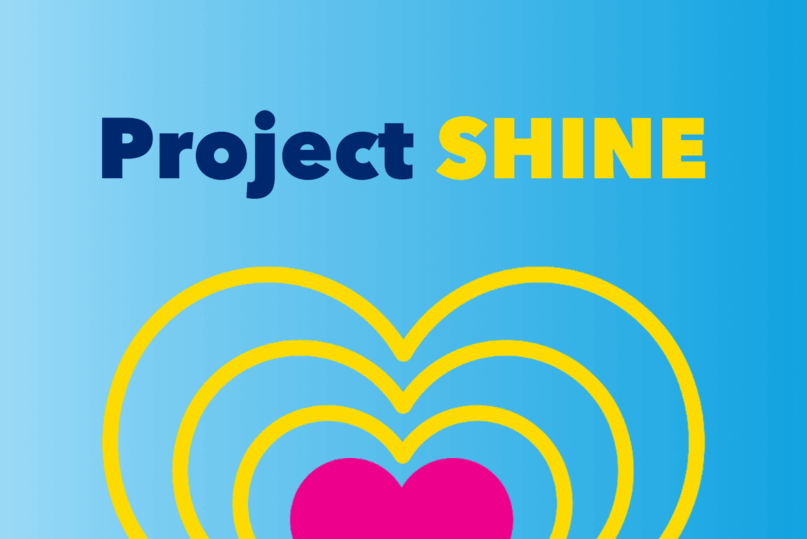
Project SHINE: Overcoming Trauma as a Person with Autism
A survivor shares her story about overcoming a traumatic sexual experience, gaining support and advice from trusted sources, and realizing what she wants for herself.
